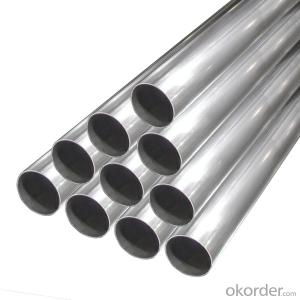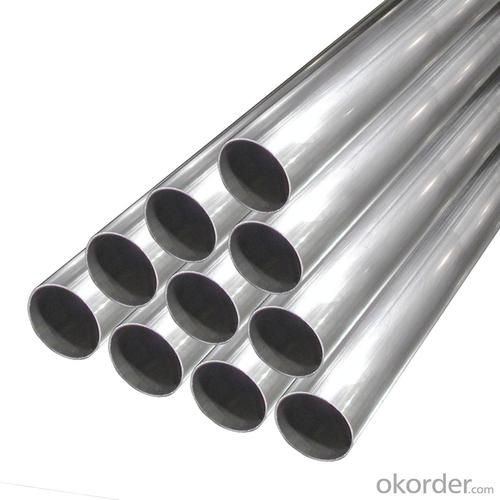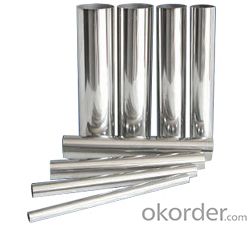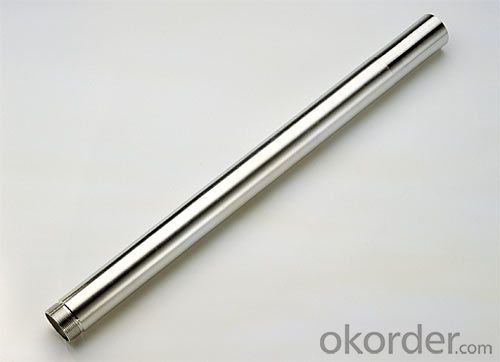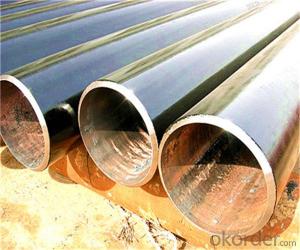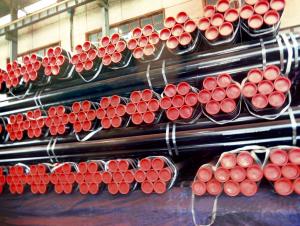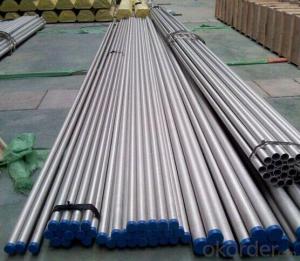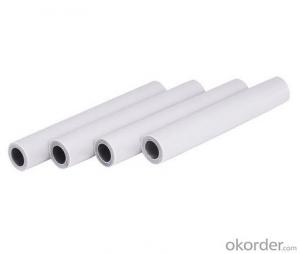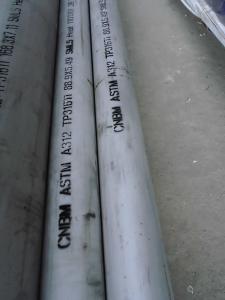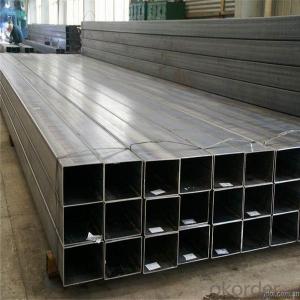Stainless steel pipe #316 durable Construction engineering green energy safety
- Loading Port:
- Guangzhou
- Payment Terms:
- TT OR LC
- Min Order Qty:
- 3000 kg
- Supply Capability:
- 300000 kg/month
OKorder Service Pledge
OKorder Financial Service
You Might Also Like
Specification
Our Company has more than 10 years experience in manufacturing and exporting stainless steel pipe and has exported to more than 50 countries and regions. We specializes in manufacturing stainless steel round tube,square tube, retangular tube, oval tube,slot tube and other special shape tube, which are of exquisite workmanship and quality is above industry level. We have several material grade of 201,202,304,304L,316,316L for you choose .
If any inquiry of stainless steel pipe you require, please feel free to contact us to get the quotation.
Strict enforcement of ASTM standard, high welding strength,weld full,non-porosity,free of crack,suitable for tube bending.
Ensure tubes have delicate surface,high brightness and smooth touching,satin finish 180-320 grit,Bright finish 500-600grit(BA),Mirror 800 grit(8K),Which is beyond industry average level and establishes the quality benchmark of (E-PAI).
Automatic plastic bag packaging equipment,PET strap pneumatic packing tool,to dresss up each tube a premium packaging and offer safety protection.
Every tube follows strict quality control during each process,to meet the standard requirements and get 100% customers satisfaction.
Sea worth export bundle paching, dry and clean warehousing ,expert container loading.
Product Description:
Stainless steel pipe
Stainless steel pipe used for construction engineering and house decorative (Extensive )
2. Main features of stainless steel pipe
Reasonable price
High manufacturing accuracy
Good visual effect
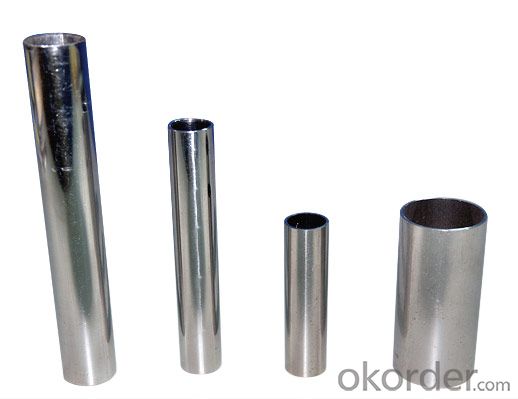
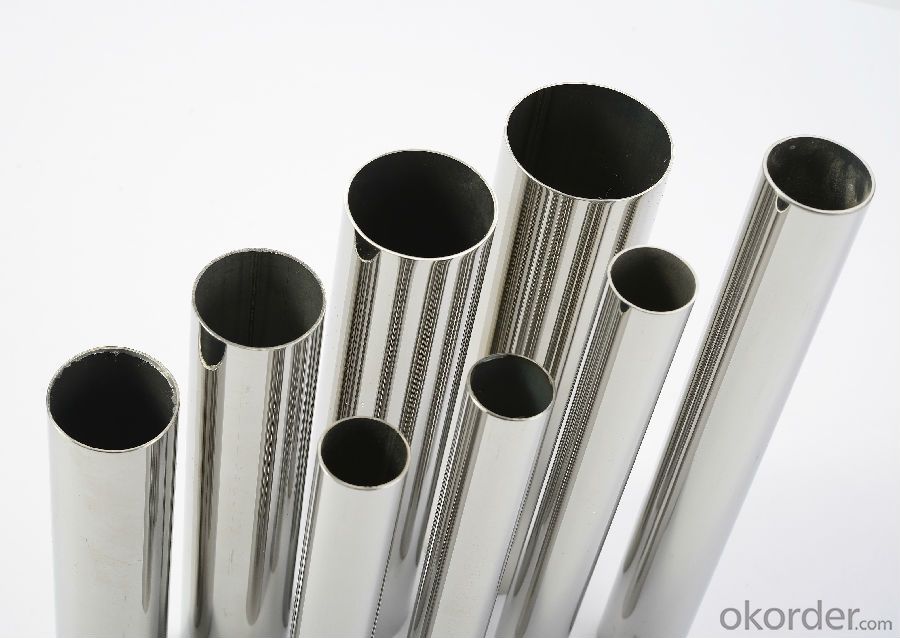
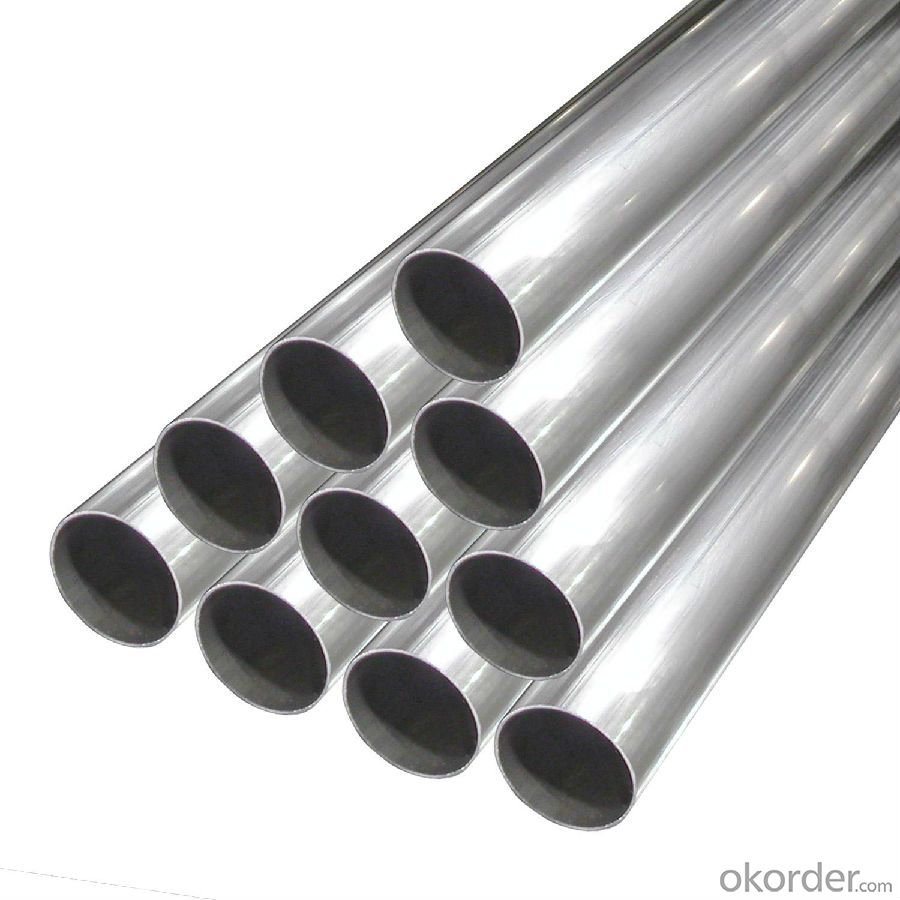
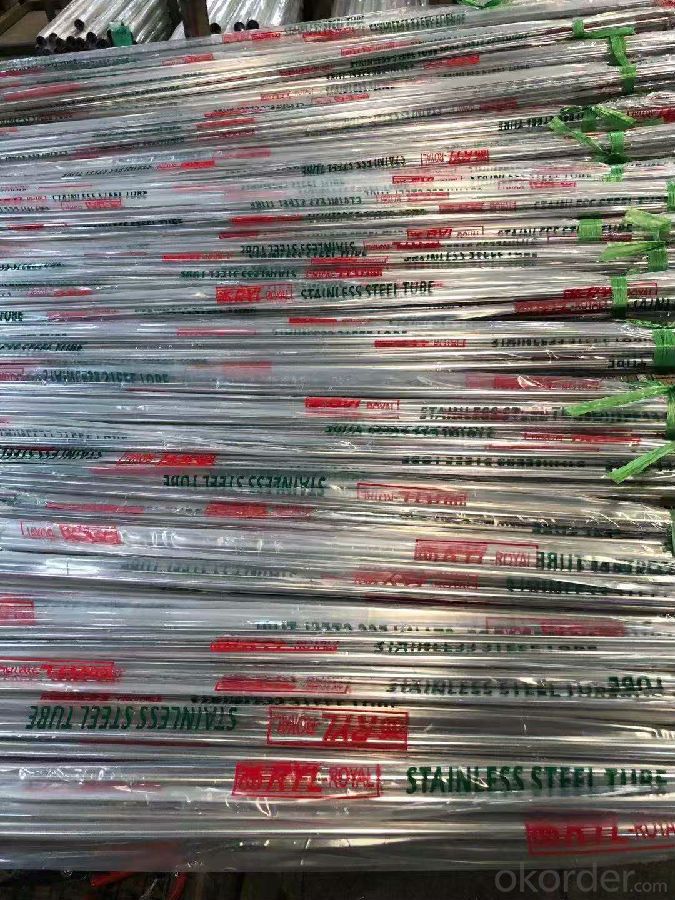
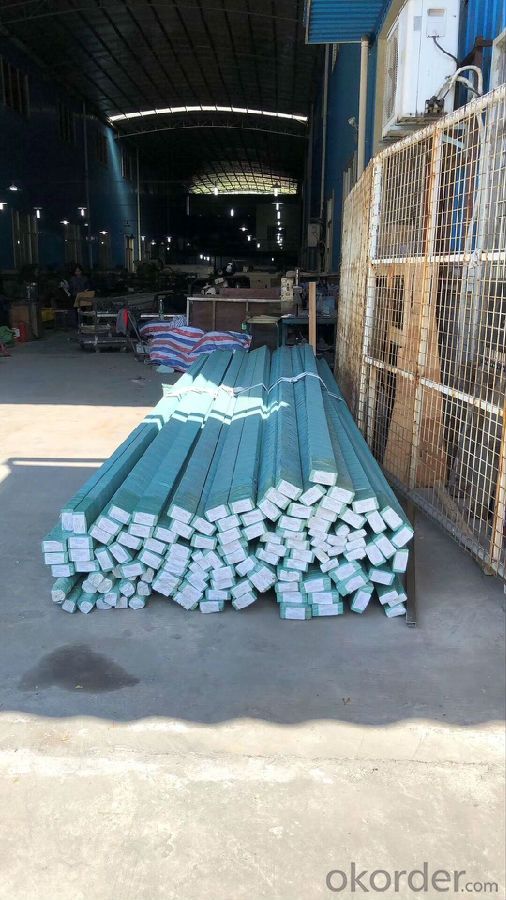
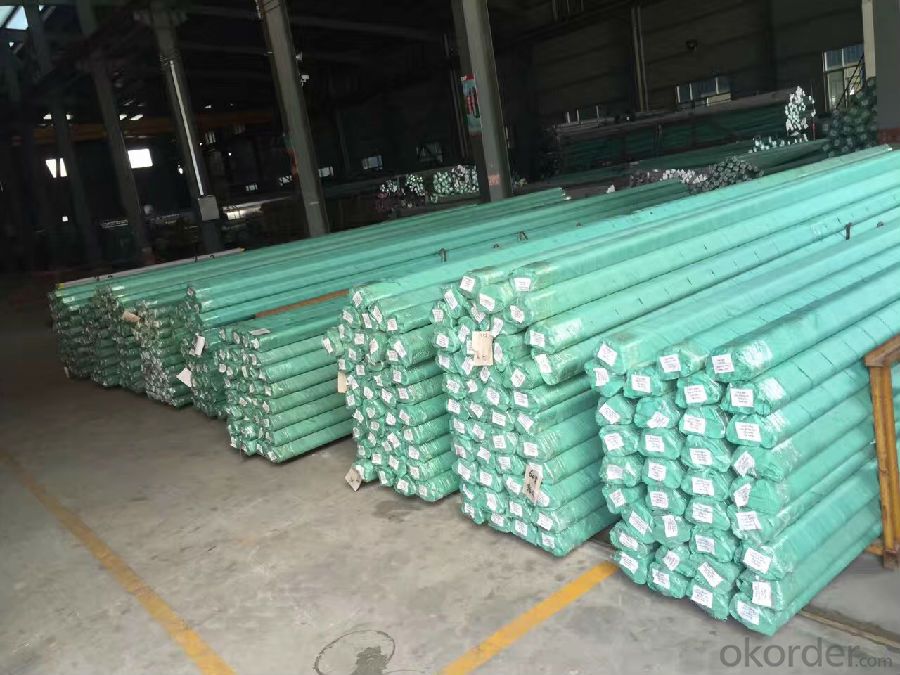
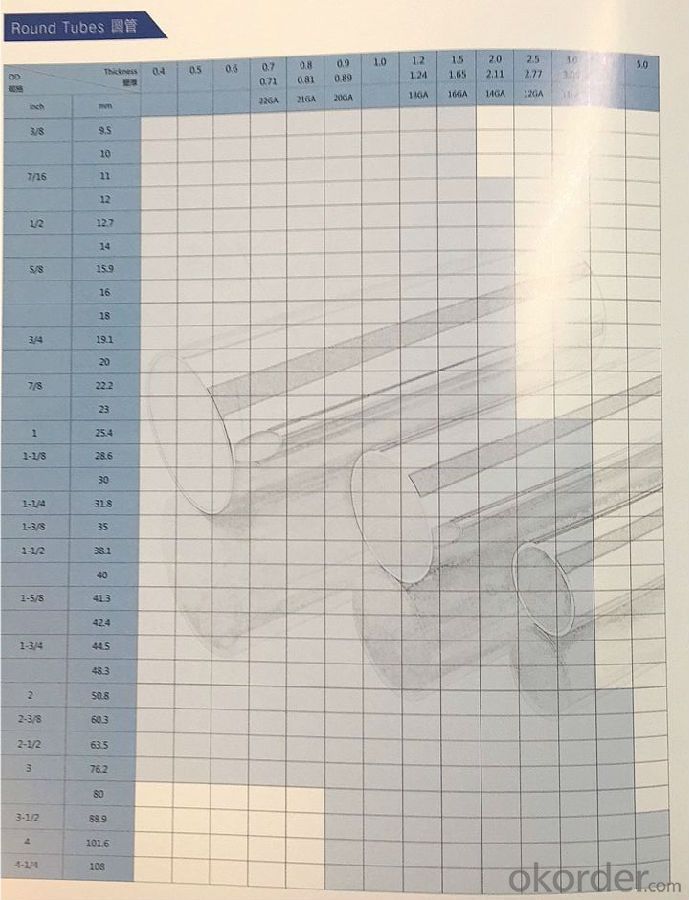
- Q: Can steel pipes be used for roller coaster tracks?
- Yes, steel pipes can be used for roller coaster tracks. In fact, they are one of the most common materials used for roller coaster tracks due to their strength, durability, and versatility. Steel pipes provide excellent support and stability for the roller coaster cars, ensuring a safe and thrilling ride experience for passengers. Additionally, steel pipes can be easily shaped and welded to create various track designs, including loops, twists, and turns, making them ideal for creating exhilarating roller coaster layouts. Furthermore, steel pipes are resistant to corrosion and can withstand harsh weather conditions, making them a reliable choice for outdoor roller coasters. Overall, steel pipes are a popular and reliable choice for roller coaster tracks, offering both safety and excitement for riders.
- Q: How do you select the right size of steel pipe for a project?
- To select the right size of steel pipe for a project, one must consider factors such as the intended purpose, the flow rate or pressure requirements, the material being transported, and any applicable building codes or regulations. Consulting engineering specifications, pipe size charts, and professional advice can help in determining the appropriate size that will meet the project's requirements and ensure optimal performance and safety.
- Q: Can steel pipes be used for stormwater management systems?
- Yes, steel pipes can be used for stormwater management systems. Steel pipes are commonly used in stormwater management systems for their durability, strength, and resistance to corrosion. They can efficiently transport stormwater runoff, helping to manage and control its flow. Additionally, steel pipes can be customized to meet specific project requirements, making them a versatile choice for stormwater management systems.
- Q: What are the different types of coatings used for external protection of steel pipes?
- There are several types of coatings used for external protection of steel pipes. Some common ones include epoxy coatings, polyethylene coatings, coal tar coatings, and fusion bonded epoxy coatings. Each type of coating offers specific benefits and is chosen based on factors such as the environment, type of exposure, and desired level of protection.
- Q: Are there specifications for scaffold steel pipe with 48mm * 3.2mm?
- Scaffold tubes are our name for materials used to build scaffolding, because most scaffolding uses tubular bamboo or steel tubing. Bamboo and other bamboo is for a long time in the use of the scaffolding tube, but due to lack of safety and durability, now only in rural and urban area construction is lagging behind some of the home building small building has been used. The modernization construction, the most commonly used type of scaffolding pipe is steel pipe, the scaffolding should not only meet the demand of workers, but also to meet the characteristics of scaffolding firm and durable, so tough hard steel is the best choice. The selected steel pipe generally requires smooth surface, no cracks, no bending, no rust, and meet the relevant national standards.
- Q: What is the buckling type thin-wall steel pipe? What is a tight set of thin-walled steel tubes? What's the difference between the two?
- The nut body and the junction box are connected at one end by adopting metric fine tooth thread, and the pipe is connected with the pipe, and one end is the same as the straight pipe joint (direct). Withhold the box joint points inside and outside teeth two. The diameter of straight pipe joint is divided into 16mm, 20mm, 25mm, 32mm, 40mm, 50mm.
- Q: Do steel pipes require maintenance?
- Yes, steel pipes do require maintenance. While steel pipes are durable and long-lasting, they can still be subject to wear and tear over time. Regular maintenance is important to ensure their optimal performance and prolong their lifespan. One important aspect of maintenance is inspecting the pipes for any signs of damage or corrosion. Steel pipes can be vulnerable to rust and corrosion, especially in environments with high humidity or exposure to water. Regular inspections allow for early detection of any issues, which can prevent more significant damage and costly repairs in the future. Another aspect of maintenance is cleaning the pipes. Over time, steel pipes can accumulate debris, sediment, or mineral deposits. These build-ups can restrict the flow of fluids or affect the quality of the transported materials. Regular cleaning helps to remove these obstructions and maintain the efficiency of the pipes. Depending on the application, steel pipes may also require periodic lubrication or coating. This helps to reduce friction, prevent corrosion, and enhance the pipes' durability. Lubricants and coatings can be applied during maintenance to ensure the pipes continue to function smoothly and resist corrosion. Overall, regular maintenance of steel pipes is essential to maximize their performance, prevent damage, and prolong their lifespan. By investing time and effort in maintenance, potential issues can be identified and addressed early on, ultimately saving time and money in the long run.
- Q: Can steel pipes be used for chemical storage tanks?
- No, steel pipes are not suitable for chemical storage tanks as they are not designed to handle the corrosive nature of many chemicals.
- Q: Are steel pipes suitable for potable water systems?
- Yes, steel pipes are suitable for potable water systems. Steel pipes are commonly used in potable water systems due to their strength, durability, and resistance to corrosion. They can withstand high pressure and are able to carry large volumes of water. Additionally, steel pipes can be easily welded together, making them a versatile choice for various applications in potable water systems. However, it is important to note that proper maintenance and regular inspections are necessary to prevent any potential issues such as rust or contamination.
- Q: How are steel pipes protected against internal scaling?
- Steel pipes are protected against internal scaling through various methods such as chemical treatments, use of corrosion inhibitors, and regular maintenance and cleaning procedures. These measures help to prevent the formation of scale, which can reduce the pipe's efficiency and lifespan.
Send your message to us
Stainless steel pipe #316 durable Construction engineering green energy safety
- Loading Port:
- Guangzhou
- Payment Terms:
- TT OR LC
- Min Order Qty:
- 3000 kg
- Supply Capability:
- 300000 kg/month
OKorder Service Pledge
OKorder Financial Service
Similar products
Hot products
Hot Searches
Related keywords
